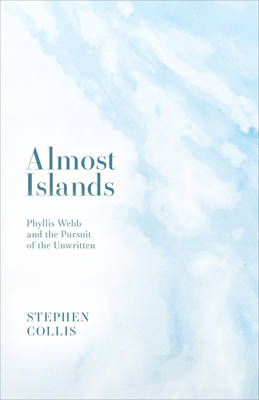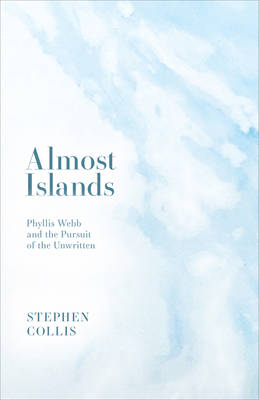
- Retrait gratuit dans votre magasin Club
- 7.000.000 titres dans notre catalogue
- Payer en toute sécurité
- Toujours un magasin près de chez vous
- Retrait gratuit dans votre magasin Club
- 7.000.0000 titres dans notre catalogue
- Payer en toute sécurité
- Toujours un magasin près de chez vous
26,95 €
+ 53 points
Description
Almost Islands is a powerfully introspective memoir of the author's friendship with legendary Canadian poet Phyllis Webb - now in her nineties and long enveloped in silence - and his regular trips to see her. It is an extended meditation on literary ambition and failure, poetry and politics, choice and chance, location, colonization, and climate change - the struggle that is writing, and the end of writing.
I go to see her because she is poetry's old crone and I am seeking. I go to her - usually three, four times a year - because it is a small ministration I can perform for her, and for her poetry, as she slowly reaches into the finite - a long, slow embrace of nothing ... If living is a process of learning how to die, then is writing a process of learning how to stop writing? I go in search of lost words, in search of the hoped-for defence against the loss of words, drawn to the shaping sounds of fate and mortality. A meticulous collection of poetic, political, and philosophical digressions, Almost Islands weaves numerous themes together. At its crux lies a literary project: to build upon and extend Webb's exposition of a "poetic" sense of the political, by proposing a political agent, the "Biotariat," a government of Life, that is both human and more than human - arrived at after following as many pathways as possible through Webb's own reading and thought. Ultimately, Almost Islands is a book obsessed with the problem of Webb's not writing, and the implications of this for a writer like Collis who, in his own words, may be writing "too much" - as well as the wider social, political, and world-historical implications of withdrawal, self-silencing, and not-doing.Spécifications
Parties prenantes
- Auteur(s) :
- Editeur:
Contenu
- Nombre de pages :
- 256
- Langue:
- Anglais
Caractéristiques
- EAN:
- 9781772012071
- Date de parution :
- 23-10-18
- Format:
- Livre broché
- Format numérique:
- Trade paperback (VS)
- Dimensions :
- 137 mm x 213 mm
- Poids :
- 340 g

Les avis
Nous publions uniquement les avis qui respectent les conditions requises. Consultez nos conditions pour les avis.






